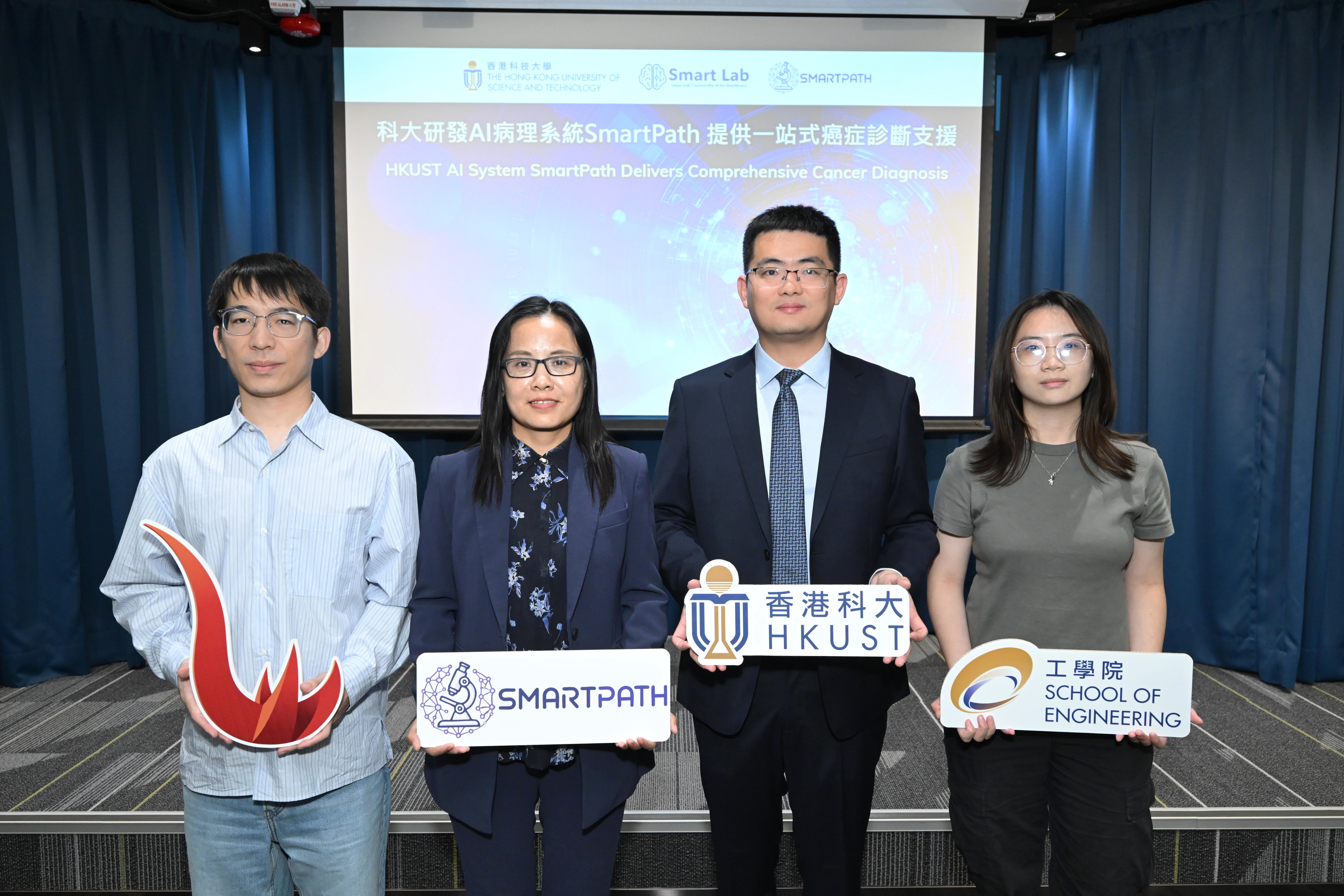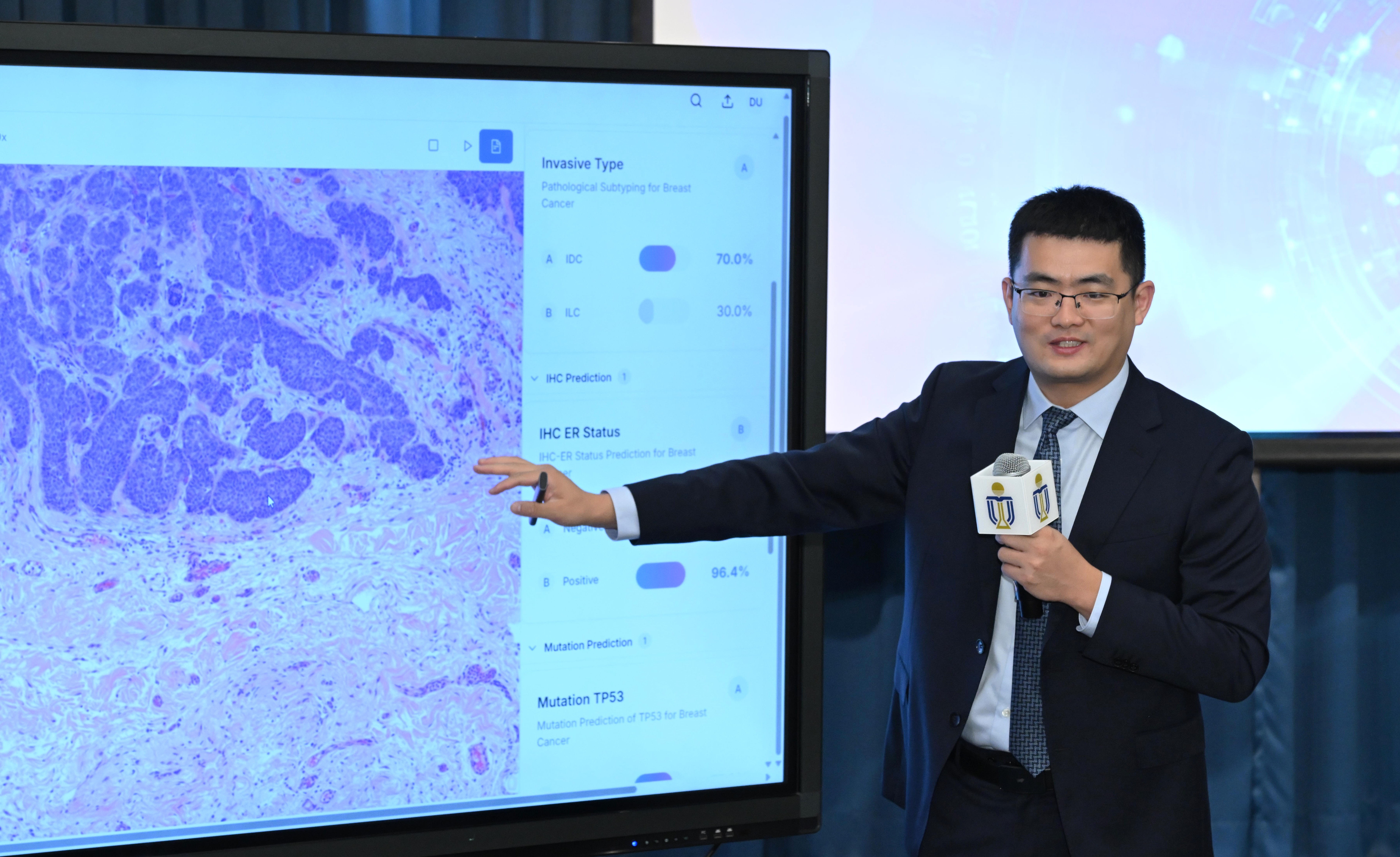
Hong Kong scientists on Monday launched an artificial intelligence system designed to transform the entire pathology workflow for cancer care.
The system, named SmartPath, has been developed by a research team from the Hong Kong University of Science and Technology.
Developed from one of the largest and most diverse pathology datasets, SmartPath was trained on more than half million whole slide images spanning 34 major tissue sites, which enables the system to assist healthcare professionals with over 100 distinct clinical tasks, including cancer classification, subtyping, treatment response evaluation, survival rate prediction, and the generation of detailed pathology reports, according to the HKUST.
A key breakthrough is SmartPath’s ability to diagnose several of Hong Kong's most prevalent cancers, including lung, breast, colorectal, and gastric cancer, the university added.
“SmartPath has consistently ranked first in a significant majority of benchmarked tasks, demonstrating superior accuracy in critical areas like malignancy identification and treatment response prediction,” said the leader of the research team, Chen Hao, director of Collaboration Center for Medical and Engineering Innovation and assistant professor of the Department of Computer Science and Engineering and Department of Chemical and Biological Engineering of the HKUST.
The system’s capabilities are driven by two integrated large AI models – Generalizable Pathology Foundation Model (GPFM) and the Multimodal Knowledge-enhanced Whole-slide Pathology Foundation Model (mSTAR).
The GPFM at the core of the system provides a framework for tumor identification, subtyping and biomarker quantification across different cancer tissues for diagnosis, survival outcomes prediction, and potential treatment response assessment.
ALSO READ: Lab-grown bone material set to revolutionize orthopedics

The mSTAR integrates pathology images with contextual data, including pathology reports and transcriptomics, which enables automated, minute-speed generation of pathology reports and offers a visual question-answering feature.
SmartPath is currently undergoing multi-center clinical validation in multiple top-tier hospitals in the Chinese mainland and the Hong Kong Special Administrative Region.
In comprehensive benchmarking, the system significantly outperformed existing models, according to the HKUST.
Chan said the continuous stream of real-world data creates a powerful feedback loop. “It fuels our machine-learning process, enabling us to perpetually refine the algorithms and enhance the system's diagnostic accuracy and predictive power.”

In a recent prospective study at Nanfang Hospital, SmartPath achieved an accuracy greater than 95 percent across multiple cancer types including lung, breast, colorectal, etc, the HKUST said.
SmartPath has demonstrated a remarkable ability to improve the accuracy of malignancy identification and provide reliable prognostic predictions, said Liang Li, director of Department of Pathology at Nanfang Hospital and professor of School of Basic Medical Sciences at Southern Medical University.
The system's rapid generation of extensive preliminary reports has proven to cut down diagnostic turnaround time significantly – a crucial factor in managing time-sensitive cancer cases, said Liang.
“We are now witnessing the future of pathology – where AI-powered systems like SmartPath seamlessly integrate into the clinical workflow, augmenting our diagnostic precision and empowering pathologists to make more informed, data-driven decisions for precise and personalized patient care.”


